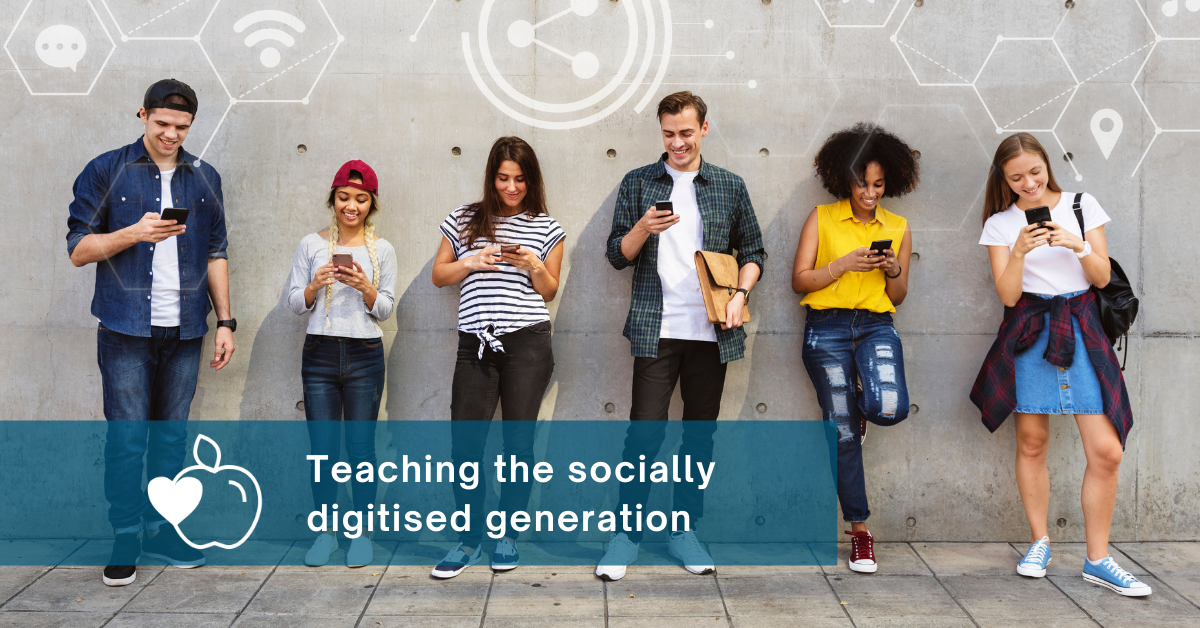‘You don’t understand … I was born with social media around.
If I lose my phone, it’s like … well, I lose an arm.’
This was said to me by a 15-year-old learner who had just lost her phone. I am sure you can relate somewhat: who hasn’t been in the same situation – that slight feeling of panic creeping up as you frantically rifle through bags and pockets to locate the missing device?
But to lose an arm? Really? Once her phone was found (such a relief), I contemplated her comment. Perhaps she was right, and I really didn’t understand. Coming to this realisation helped me, as a teacher, to take the first step towards understanding the socially digitised generation, approaching them with patience rather than judgement. And let’s be honest – we do judge them. It’s hard not to. They certainly don’t get how life was for us when we were their age, forced to research for our school projects in BOOKS at the LIBRARY, having to WAIT to find out what happened at the party we missed on Friday night.
Probably one of the most significant findings for us as teachers when it comes to the socially digitised learner is that many of our learners report feeling anxious when they are unable to access their devices. This appears to be the result of a perceived and perhaps overwhelming obligation to remain constantly connected to various social networks through their phones (Lepp et al., 2014). Adolescence is a time characterised by much change, turmoil, exploration and often confusion. We cannot ignore the fact that a difficult period in any individual’s development has now been compounded significantly.
Studying for tests has become more challenging. Researchers have observed the study behaviours of a sample of primary school, high school, and university students and found participants typically became distracted by social media such as Facebook and texting in less than six minutes after initiating a studying session (Rosen et al., 2013). Our learners need to muster far more willpower than we ever needed in order to sit down and study.
The ways in which we take in information have changed, quite fundamentally. Firstly, reading skills are declining. Learners have less experience reading longer-form print, especially books, which makes it more difficult for them to complete reading assignments and access hardcopy textbooks. Secondly, young digital-media users tend to switch between tasks at a rapid pace, often every few seconds (Tweng et al., 2019). Perhaps this is why many teachers are reporting that it is becoming increasingly difficult for learners to focus on a specific topic in class for longer than ten minutes. We expect learners to be able to concentrate, persevere in their learning, and put in the effort needed to achieve. The question that arises then is this: have we provided the environment in which life is able to teach them these skills?
Now, it’s not all doom and gloom. Our lives have been transformed with the invention of social media. The positives are numerous, for all of us, both professionally and personally. However, in order to increase our level of empathy for those we teach, we do need to be cognisant of how life has changed. This is certainly something we can offer our learners that they will never be able to receive from Google.
References
- Lepp, A., Barkley, J. E., & Karpinski, A. C. (2014). The relationship between cell phone use, academic performance, anxiety, and satisfaction with life in college students. Computers in Human Behavior, 31, 343-350.
- Rosen, L. D., Carrier, L. M., & Cheever, N. A. (2013). Facebook and texting made me do it: Media-induced task-switching while studying. Computers in Human Behavior, 29(3), 948-958.
- Twenge, J. M., Martin, G. N., & Spitzberg, B. H. (2019). Trends in US Adolescents’ media use, 1976–2016: The rise of digital media, the decline of TV, and the (near) demise of print. Psychology of Popular Media Culture, 8(4), 329.
About the author
Lauren Brown is the Head of the Student Development Centre at a Helderberg school in the Western Cape. She is an Educational Psychologist and Cognitive Development Specialist.



